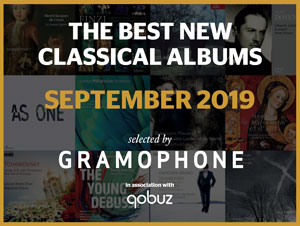Puccini: Madama Butterfly at Danish National Opera | Live Review
Andrew Mellor
Tuesday, November 5, 2024
Of the many ways directors are currently reframing this story, special pleading for Pinkerton seems curiously at odds with the zeitgeist
⭐⭐⭐


Norbert Schmittberg, Chunxi Stella Hu, Jens Jagd and Anders Kampmann (Photo: Anders Bach)
Two surprises preceded curtain-up at the Danish National Opera’s (Den Jyske Opera) performance of Madama Butterfly at the old opera house in Copenhagen on 4 November. First came news, delivered by a Stage Manager, that Viktorija Kaminskaite was too ill to appear as Cio-Cio-San. The role would be sung from the side of the stage by Kseniya Bakhritdinova, flown in hours earlier from Kyiv, and acted by the other Butterfly on the tour, Chunxi Stella Hu.
Next, up struck the Odense Symphony Orchestra with a stand-alone Overture - actually Puccini’s Act III intermezzo - played while the company mimed-out what director Ulrich Peters evidently wanted us to receive as context: Pinkerton on a night out in Nagasaki, rescuing the performing geisha Cio-Cio-San from being sexually assaulted, then interpreting the amorous gaze that followed as full-blown love.
Of the many ways directors are currently reframing this story, special pleading for Pinkerton seems curiously at odds with the zeitgeist (Floris Visser’s staging for the Royal Danish Opera, which opened in April, tells the story very effectively from the viewpoint of Cio-Cio-San’s now-adult American son). For what it’s worth, Peters’s idea does help rationalize what seems like an uncharacteristically irrational decision from a serving naval officer.
But it also has the effect, in this manifestation, of badly diluting that sense of blind, child-like wonder and optimism that brings us into such close sympathy with Cio-Cio-San while undermining the opera’s prescient critique of American colonialism. It also proves musically destructive: robbing the Intermezzo of its dramatic power by plunging us cold into musical themes that should have marinated for two hours, while leaving a gaping hole at a pivotal moment in the drama (it wasn’t played again). Puccini was actually quite skilled at pacing a drama. Who knew?


Anders Kampmann and Chunxi Stella Hu (Photo: Anders Bach)
Another curiosity in a staging otherwise so traditional it could have been designed by AI (but in this instance employed Rifail Ajdarpasic) is to have Cio-Cio-San’s child a doll. A delusion? Suzuki’s manhandling of it would suggest so. But that makes narrative nonsense of what follows from the Bonze, Pinkerton, Kate and Sharpless and robs the drama of another heart-rending pivot: the prospect of a mother being separated from her only child. Stock gestures from Hu’s Butterfly and Iurie Ciobanu’s Pinkerton do little to illuminate Peters’s idea of the story here.
Thank heaven, then, for Ciobanu’s singing - nicely supported, seamless in its mahogany tone, on a constant legato, even if he does take the odd sneaky breath and might be considered overly cautious with melodic line. That there were special moments in this Butterfly’s visit to Copenhagen is largely due to the electricity frequently generated between stage and pit by music director Christopher Lichtenstein, who gets expressive, theatrical and attentive playing from the Odense Symphony Orchestra (a better opera orchestra than the Copenhagen Phil, which also plays for the National Opera in the capital). Anton Eriksson portrays a sympathetic Sharpless and Vera Egorova kicks against stereotype as a strong, tall Suzuki. Norbert Schmittberg can sound worn as Goro.
While Ciobanu gives us contained strength, Bakhritdinova - with a more voluptuous and variegated voice and on no meaningful rehearsal - had little choice but to just sing out in the hope of forging some sort of workable musical synergy with colleagues on the other side of the stage interacting physically with someone else entirely. There was a little bluster at the top of her ‘Un bel dì, vedremo’ and she could sometimes sound a touch brittle. If the circumstances did produce any insecurity in her, she channelled it into the emotion of a role she clearly knows well. Hers is some instrument and it was stimulating to hear it unbridled by contextual preparation or compromise. And even behind a music stand, with the slightest hand gesture or lifting of her heels, she gave the role far more physical authenticity than we saw on stage.
Until 30 November jyske-opera.dk






